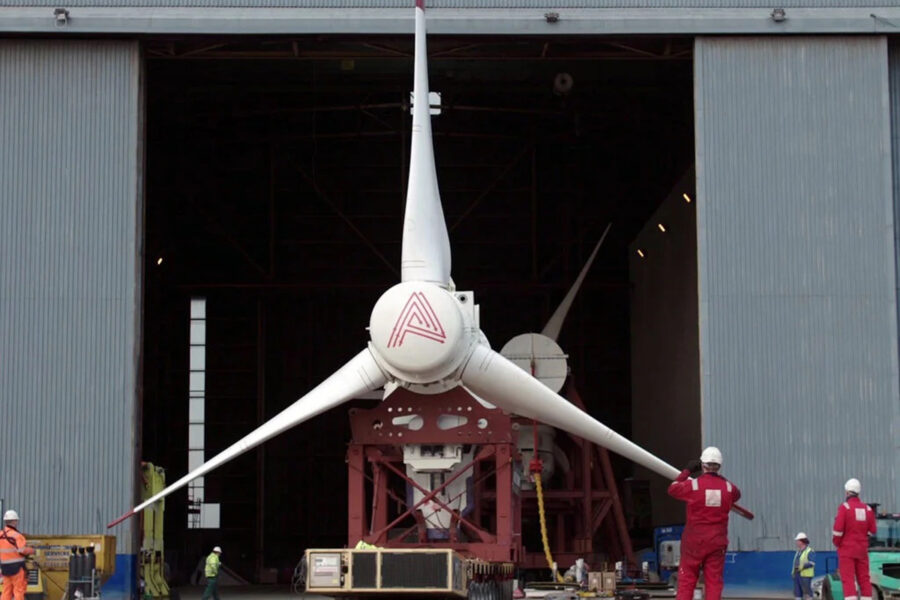The latest round of UK government energy auctions failed to attract a single bid from offshore wind developers, prompting many commentators to question the pricing strategy put in place.
This, they say, failed to recognise that shortages of materials, parts and skilled offshore labour have driven construction prices up by 40% in the last 12 months.
Offshore wind is widely touted by developers as the key to a rapid shift away from fossil fuels. Whilst certain land-based developments such as onshore wind and hydro can produce cheaper electricity, the scale of potential development is much smaller.
The failure to obtain bids, coupled with a slowdown in the development of existing sites, puts the current UK targets of providing 50GW of offshore wind power by 2030 at risk. As it is one of the cheapest sources of electricity, failure to develop offshore wind – particularly with fixed turbines – as planned is likely to lead to higher electricity bills for consumers.
The price increases affecting existing developers are also likely to see more developers slow down their developments in licensed UK sites, in favour of more lucrative developments elsewhere. Already this summer, Swedish developer Vattenfall has confirmed that it is pausing construction of its 140-turbine Norfolk Boreas site, and Norwegian giant Ørsted is likewise concentrating its efforts off the coast of New England in the USA.
Failure by the UK to recognise the commercial realities facing developers is likely to create greater uncertainty for impacted fishermen, and tighten already reluctant purse strings relating to mitigating impacts of developments on the UK fishing industry.
Mike Cohen, CEO of the NFFO, said: “This demonstrates the dangers of building an energy policy around the willingness of private sector companies, most of them foreign-owned, and with plenty of alternative projects elsewhere in the world.
“It highlights the overall lack of planning for the marine environment, and the vulnerability of an ad hoc policy that poses a real risk to the fishing industry, for example, by impacting the delivery of FMPs.
“Generating a plan within an FMP, or the designation of an HPMA, on the basis of wind power developments that don’t go ahead poses a real risk to joined-up management of our marine resources.”
However, whilst the auction of offshore wind, at a price of £44/MW for fixed turbines, and £114/MW for floating turbines, failed to attract a single bid, tidal power developers successfully submitted a range of bids based on the much more generous price of £198/MW for a period of 15 years. This reflects the risks and development costs of an energy source that is still in its infancy.
The projects include SIMEC Atlantis’ MeyGen in the Pentland Firth, which will see 22MW of new capacity added to its existing array of tidal turbines. The company says it is in advanced discussions with other engineering companies that will see the deployment of a 3MW turbine. It claims that these will be the most powerful tidal turbines ever deployed.
Across the water in Orkney, Orbital Marine Power will add 7.2MW of generation to existing projects, making total of six floating turbines anchored across the tide there. The completed Orbitol projects will, the company says, mean that its tidal turbines will be powering 9,000 homes by 2028.
Portuguese developer Magallanes Renovables will develop smaller projects in Orkney and in Wales, where two other developers, Verdant Isles and MOR Energy, also made successful bids.
Whilst the total tidal power confirmed at this round of auctions is a fraction of the existing consents provided for offshore wind, tidal developers claim that the technology is rapidly coming of age, and that the dependable nature of tidal energy makes it a key part of any future energy ‘mix’. Developers predict that it has the potential to supply as much as a sixth of the UK’s electricity by 2050.
This story was taken from the latest issue of Fishing News. For more up-to-date and in-depth reports on the UK and Irish commercial fishing sector, subscribe to Fishing News here or buy the latest single issue for just £3.30 here.
Sign up to Fishing News’ FREE e-newsletter here.








